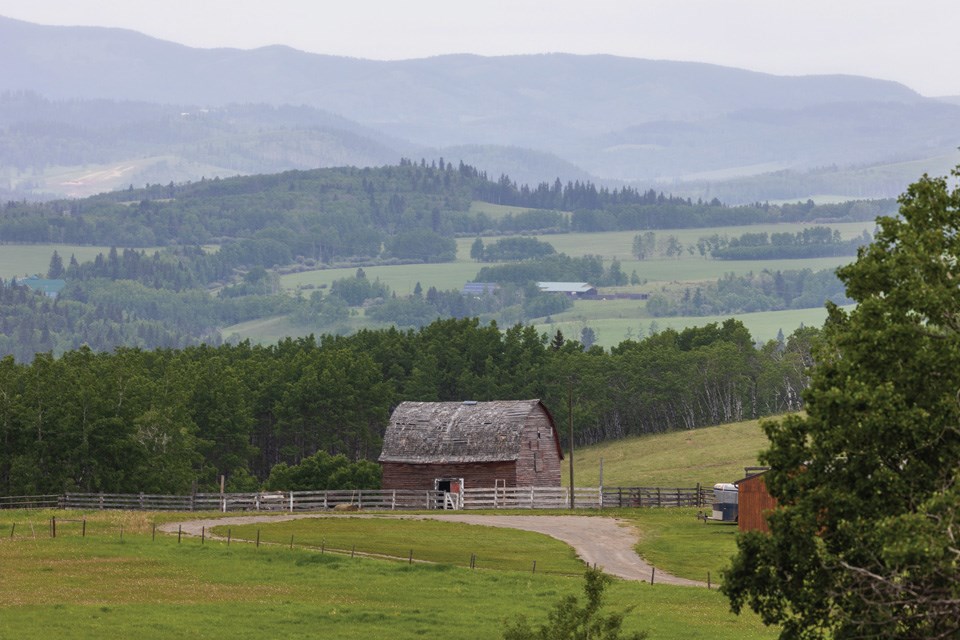The heavily forested contemporary Bragg Creek is alive with the likes of pine, fir, aspen and poplar trees and one might be surprised to discover that the first settlers to arrive in the area in 1885 founded a homestead in an open meadow and flats.
A fire stripped the trees from the land making it attractive for settlers like the namesake of the hamlet Albert Warren Bragg from Nova Scotia. They were living on what is now Saddle & Sirloin Ranch in 1894 when A.O. Wheeler surveyed the area, but he, like others, moved on when he discovered early frosts and snowy winters left little food for their livestock.
Other early settlers to the area were the Fullerton, Robinson, Connop, Burby and Sanders families. These families are still actively ranching in the area, although today you are just as likely to find peaceful acreages on former ranch lands.
Others who remained, traded with the Stoney First Nation (also known as the Nakoda First Nation) was an important part of life. Beaded clothing and furs were exchanged often at a trading post located at the current site of the Bragg Creek Trading Post on White Avenue and continues to this day. Oil was discovered in the area around 1913, and drilling took place initially where the picnic tables now stand in Bragg Creek Provincial Park. That well was capped at the beginning of the First World War when invest- ment from Britain dried up. Further oil reserves were discovered north of Bragg Creek in the 1920’s at the same time gas was found. Both fuel sources continue to be extracted in the area today.
From the 1920’s onward, the area became increasingly popular as a weekend and retirement destination. In was established in Bragg Creek, near the junction of the Elbow River and Bragg Creek. Initially a simple tent, a permanent structure was built in 1936 on Tom Fullerton’s land. The location was changed and a new youth hostel was built at a different location in K-Country. It subsequently burnt down in 1984.
The Round Hall was a popular destination for locals and people who came from Cochrane, Millarville, Priddis, Jumping Pound and Calgary to attend dances from the 1920’s through the 1970’s. A renovated round hall can be found off of Bracken Road, offering the perfect stop for a photo-op or a function.
Due to its proximity to Calgary, the area is attractive for those who commute to work into the city, but long to return to the peace of the wilderness at the end of a long day.
This content has been republished for the Great West Media & Southern Alberta 51暗网papers Hot Summer Guide advertising feature. The Hot Summer Guide is a special feature about summer activities, bucket list adventures, staycation options, road trips, attractions, events, and road trip-worthy food & beverage destinations across Alberta. It is not written by and does not necessarily reflect the views of the editorial staff.
This article was originally published on May 18, 2022.




